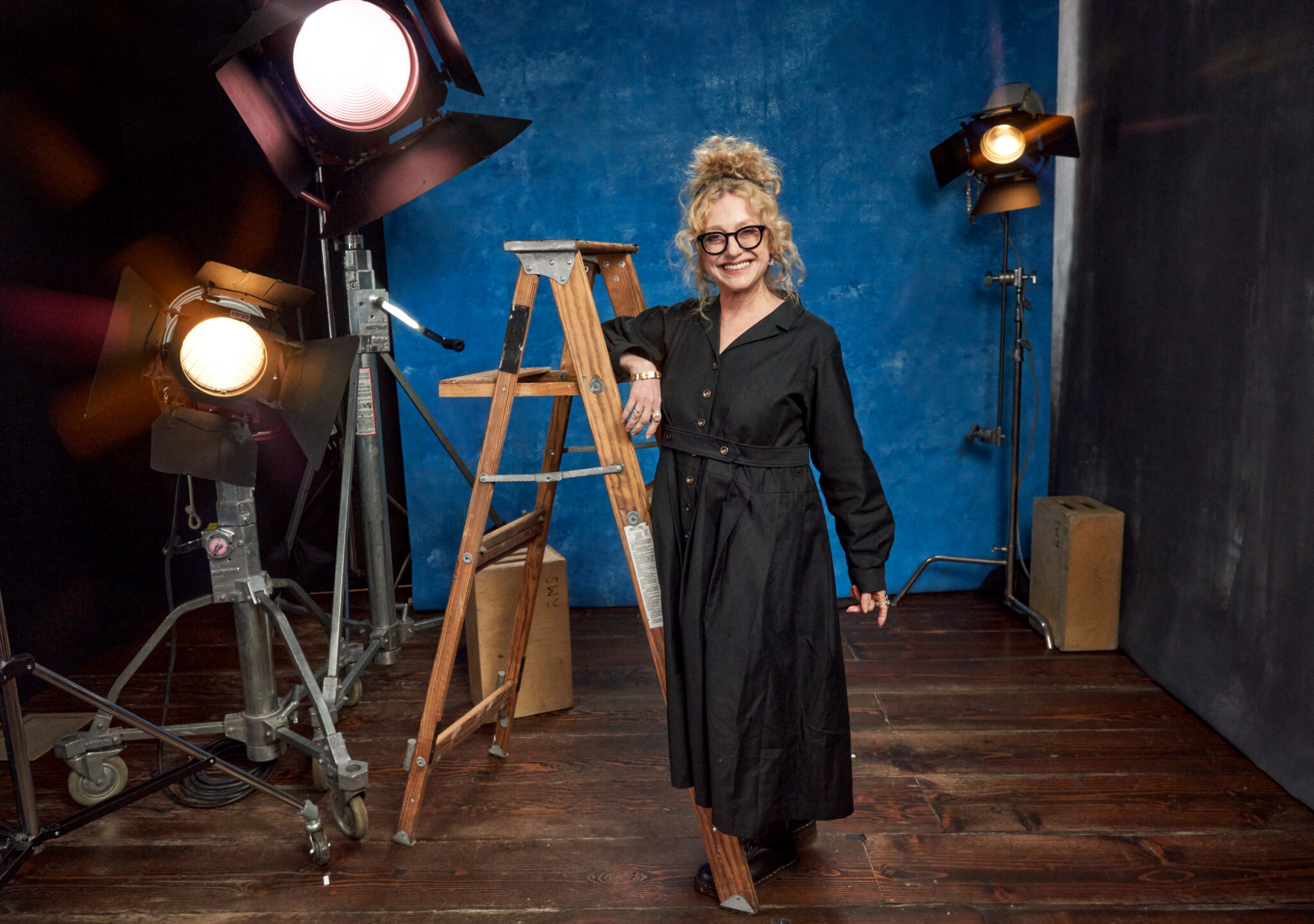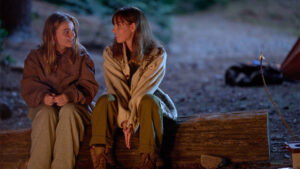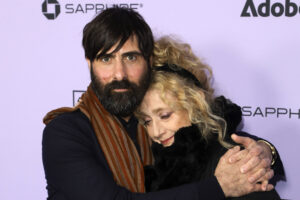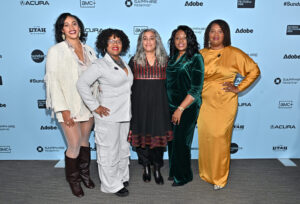Carol Kane, “Between the Temples” (photo by Presley Ann/Shutterstock for Sundance)
By Matthew Eng
There’s a scene early in Nathan Silver’s Between the Temples where Ben (Jason Schwartzman), a grieving cantor unable to sing, describes Carla (Carol Kane), his grade-school music teacher who also happens to be his newest and unlikeliest bat mitzvah student, as “a different kind of funny.” It’s an apt way to describe the multifaceted delights of Kane’s performance in this odd-couple comedy, now in theaters after debuting in competition at the 2024 Sundance Film Festival.
The film offers a refreshing change of pace for an actor who has tended to be typecast as daffy eccentrics and motormouthed imps. Kane’s long and eclectic career is certainly full of indelible comedic characters. But just as memorable are the heart-quickening dramatic performances in which Kane conveys the enormity of a character’s internal state by freezing a single expression of fright, wonder, distress, or ecstasy across a porcelain face that could have easily made her a silent movie star. (Recalling how Kane was nearly cast in Yentl [1983], Barbra Streisand marveled in her recent memoir at the actress’ “antique” countenance, which made her look “like someone from another century.”)
Kane is as hilarious as audiences have known her to be in Between the Temples, while at the same time finding layers of valor and vulnerability in a character whose elaborate history, myriad idiosyncrasies, and generosity of spirit are given a proper showcase. Kane’s voice — still high-pitched though grown huskier, even fuzzier, with time — remains a singular instrument capable of making mesmeric and mercurial music out of the plainest of prose. But the actor is just as potent here during moments of speechless sorrow and uncertainty, as when Carla is chastened into quietude as her beastly adult son mocks her impending bat mitzvah. It is a testament to the ardor and sensitivity of Kane’s performance that Carla’s dream is never reduced to comic fodder but emerges as a sincere and abiding dream, long nurtured and suddenly attainable.
I met with Kane in Manhattan a few days prior to the release of Between the Temples to talk about the unique artistic opportunity of Silver’s film, the evolution of her acting process, the enduring inspiration of her nonagenarian mother, and rejecting the pigeonholing tendencies of the industry in which she remains a stalwart.
What attracted you to Between the Temples and more specifically the role of Carla O’Connor?
Those are two different things. First my peeps told me that Jason Schwartzman was gonna star in this movie and then I thought, ‘OK, I don’t care what it is, I want to work with this guy so badly.’ I just admire him so much. And then I looked at Cutting My Mother (2019), Nathan’s [documentary series] about his mom. [It’s] pretty unbelievable. So then I had faith in him. And then I had faith in the challenge of not having a script, [even though] I’ve never worked on a movie without a script before.
There wasn’t ever a script. The way [Nathan] works is that he doesn’t write a whole script; he writes what he calls a “scriptment,” which is a combo of a script and a treatment. So he and his writing partner Chris [Mason Wells] write almost like a chapter book. And it has scenes in it, but they’re sort of described more like a story. There are some lines just to give you a flavor of what he’s imagining for [a] scene, but it’s not a script. And then I sort of thought there would be a script because I think Nathan thought there would be a script, but that didn’t happen. And it’s probably a really good thing that it didn’t happen because that’s not how he works. The way [Nathan] works is so unique and so great, [especially] the way he meshes with his brilliant DP, Sean Price Williams.
We would get the lines for each scene the night before or a day-and-a-half before, something like that. And we would start working and we would say the lines as written and Nathan would say, “No, no, that’s not it! That’s not it at all!” [laughs] We would start over again and improvise around the lines, around the essence of each scene, and we would just keep going until he found what he needed, which was sometimes immediate and sometimes very challenging and would take a long time. But then the DP was shooting something that was mapped out the way it normally is. For instance, a scene that Jason likes to use as an example [is] when his character comes to sleep over my house for the first time and I come upstairs and I give him my son’s pajamas. And he does this brilliant thing of lying down and putting the pajamas over his clothes. And then I have a line that was in the script, saying, “If you need anything, I’ll be right downstairs.” [But] I didn’t want to leave him so I just laid down on the floor. That was spontaneous but because our DP and our director know how to collaborate in this form so well, Sean just shot it, even though he had no way of knowing — nor did Nathan because I didn’t know — that that’s what I was gonna do. Sean didn’t say, “Well, that needs a whole new lighting setup if she’s gonna be down there…” It wasn’t like that.
Carla is certainly an atypical character to see depicted in a film, much less at the center of one. In most movies, she might just be the butt of a joke about someone’s 70-something-year-old mother getting a bat mitzvah…
Most movies come from the point of view of [the character of my] son [in the film], who thought [Carla] was a joke.
Right. It sounds like the character didn’t come as fully-formed as she might have if this were a more traditional project where there was a concrete script…
Well, Nathan thought long and hard about who Ben was and who Carla was so there was a very solid foundation and guide for me. I knew that she was loosely based on Nathan’s mother. And I have a mother who is a late starter and an extraordinary woman. She moved to Paris when she was 55 and started a whole new life as a musician and was there for 20 years, became considered a complete master of a teacher, and then moved back at 75 to New York and started over another time. So I have in my DNA that it’s possible to start over, like Carla does. Even though a lot of people don’t support her, she’s always dreamt of being bat mitzvahed — and she’s gonna do it.
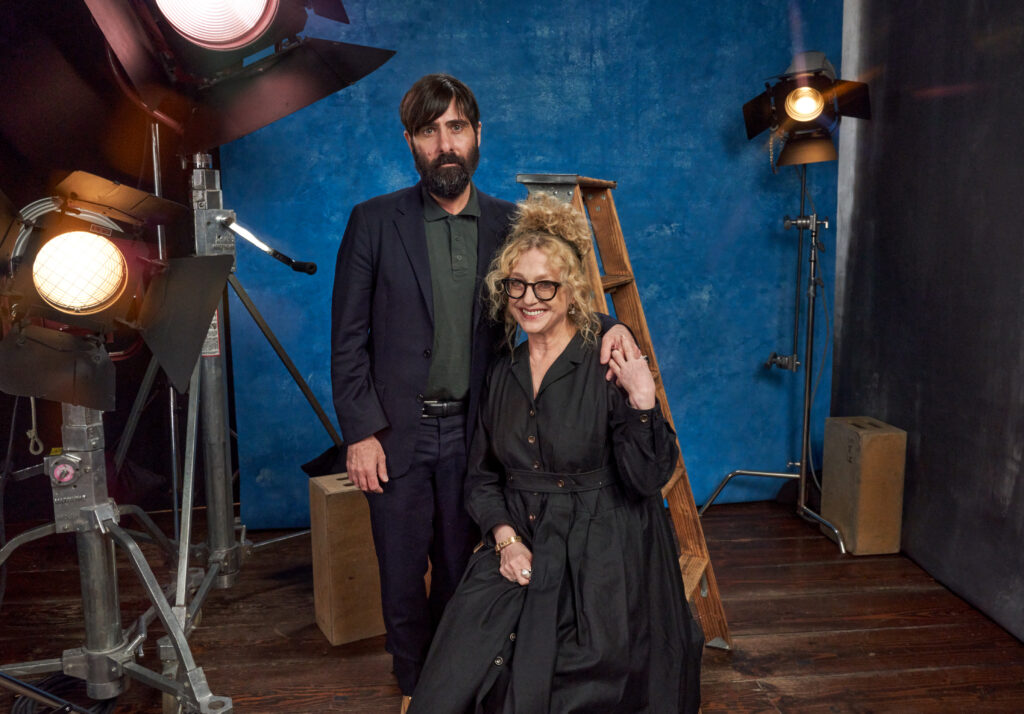
I would’ve never thought to pair you with Jason, but there is an unmistakable rapport between you two that feels genuine, nuanced, and near-instantaneous. Even when your characters are at odds or misunderstanding each other, you two appear on the same wavelength.
It was a privilege. It just happened so naturally, right from the beginning. He’s an extraordinary human being. Besides being an extraordinary artist, painter, actor, musician, writer, he’s a great father, a generous person… As much as I admired and wanted to work with him, he was so much more than I expected.
In his intro to a recent interview with you, Nathan Silver wrote that you’re “no bullshit” and that during filming you “immediately let it be known if anything felt inauthentic.” I’m curious about any moments on set where you intervened and changed the details or even the direction of a scene to make it feel truer to the character you were creating.
It was always that way between me and Jason, [where] we felt a tremendous obligation — to the story, to our characters, to each other, to Nathan, to Sean — to be authentic. And we would both speak up if it didn’t feel right. As actors, we felt that obligation to be true.
One of the most challenging scenes [was] the one in the office where [our characters] don’t know each other well and I’m wanting one thing and [Jason’s] wanting another thing. I’m insisting on this bat mitzvah and he’s trying to talk me out of it. [Getting] the tone and the lines right in that scene were pretty hard. [Another] scene that was like that was the big, long scene where he comes over to my house and he takes some tea that has something in it. Those scenes were extremely hard to get right [because] it seemed like there were a million options. And to Nathan’s great credit, he wouldn’t stop until he felt that we had it. He had the final say. He wouldn’t let it go at “sort-of right,” which is a great feeling for an actor. It’s a security blanket to know that the director is not going to say, “Eh, I guess it’s okay.” [laughs] He’s not gonna say that. He’s gonna say, “That’s not it,” and keep going.
In that same interview, you describe yourself as “an insane perfectionist” and how that cost you early on in your career, which began when you were a teenager. Do you still feel that way about your acting process? I’m wondering if your approach to crafting a character, especially one as unique and substantial as Carla, has evolved over time.
I think I’ve let a lot more breath into my process, a lot more room for accidents — and the accidents are frequently the most joyful stuff. When I was young, I held on so tight. It was hard on people around me because I wanted everything to be perfect. Well, life isn’t like that. Life don’t go that way. My idol, Bette Davis, was that way. I really related to that. People would call her “difficult” just because she wanted everything to be right. And she was so kind and lovely to me and to many people. But if people didn’t do their best, she wasn’t having it. And I guess I was kind of like that. But I have let a lot of that go because I understand now, since I’ve been privileged to keep working for so many years, that what we do is largely about the process and not the result. It doesn’t matter how perfect it is, people might not see it. And people might not see it, but if you live a good life while you’re doing it with your collaborators then you’ve done it. If people want to receive it kindly then that’s a miracle and a blessing, but it’s nothing you have any control over. I’ve let go of a certain amount of control as I’ve gotten older.
There was definitely a shift within the first decade of your career, where after a string of mostly dramatic roles such as those in Wedding in White (1972)…
Did you see Wedding in White?
I did. It’s a devastating film.
I love that you saw that because I’m very proud of that movie.
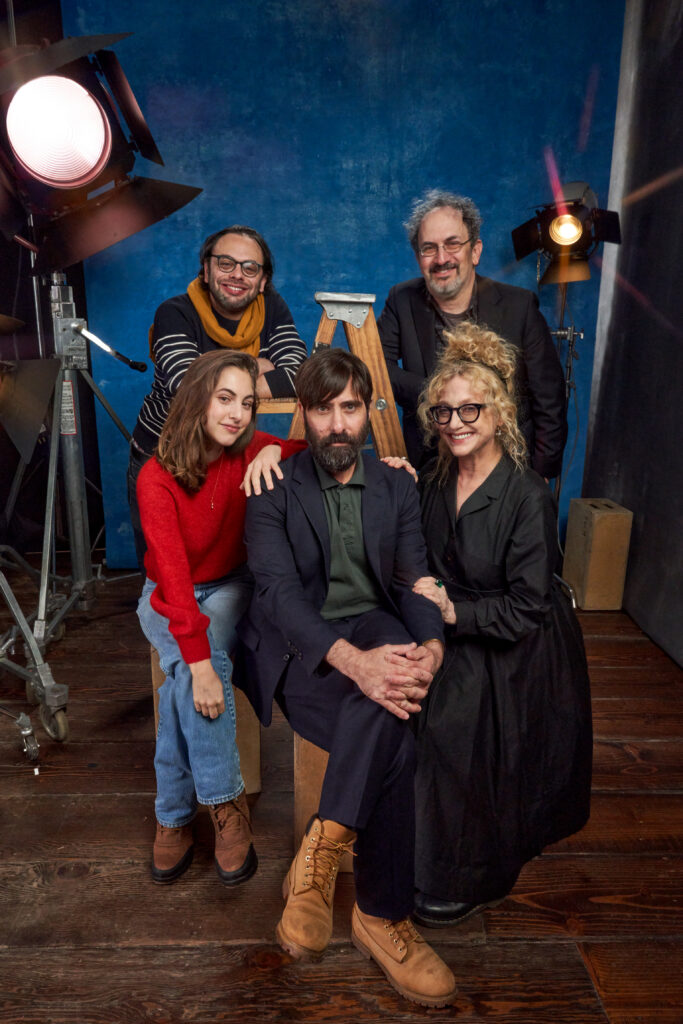
It definitely deserves to be recognized and revisited. So after Wedding in White, Hester Street (1975), and When a Stranger Calls (1979), you became synonymous with broad comedy. In a way, this makes complete sense since you have such fantastic and distinctive comic abilities…
It’s an accident. Before I made Scrooged (1988) with Bill Murray, I was in a workshop with him and he was saying to me that some people are born funny. He was one of them. Mary Kay Place also did the workshop, and she was one of them. I don’t know about that. I have no training for comedy, except that one day, after not working for a solid year after I was nominated for an Oscar for Hester Street, Gene Wilder called me up and asked if I wanted to play his wife in this comedy, The World’s Greatest Lover (1977). I don’t know what got into him but he did that and that was the beginning of comedy for me.
But did you ever feel frustrated or stymied as a performer by being so closely associated with one genre, to only be seen as a comic actor or an eccentric?
Yes! That’s still very frustrating for me because I’m so grateful for these roles on Taxi and Unbreakable Kimmy Schmidt — oh my god, these are the greatest roles. But I don’t like that people pick one genre or the other. It’s a long life and we do what we do, we do different things at different times. Nobody — it doesn’t matter if you’re in show biz or not — nobody likes to be put in a box, right? Or limited to one thing. Because we’re all so complicated, aren’t we? People are so complicated. It’s like once you’re over 65 in the industry, you’re only the grandma. People aren’t like that in real life.
They aren’t defined by a single role.
Or a single time in life. Like I said, my mother reinvented herself at 55 and at 75. People are not cookie-cutter-fashioned. But some people think that it’s easier to make those choices to narrowly define people, but that’s not how life is… I think.
I think you’re probably right. I also think your mother should be a character in a movie. Maybe you could play her.
What a wonderful thing for you to say. I agree. She’s so extraordinary. I’ll tell my mama you said that.




